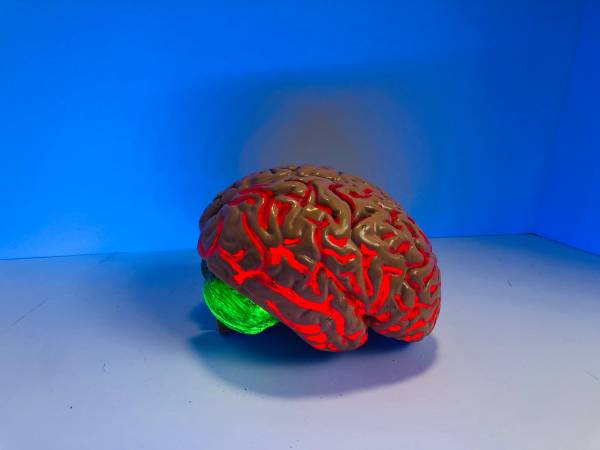It’s not uncommon to forget to buy bread at the grocery store, lose your car keys, or call your neighbor by the wrong name. Alzheimer’s disease is a progressive illness that typically worsens over a number of years. It starts out slowly and slowly gets worse. Researchers and doctors created the following seven stages to explain how an individual with Alzheimer’s may change over time. Then you can understand your old parents with Alzheimer’s well.
Stage 1: Before Symptoms Appear
The brain changes associated with Alzheimer’s disease start before any symptoms are apparent, just like with many other diseases.
This time period, which is frequently referred to as “pre-clinical Alzheimer’s disease,” probably starts 10 to 15 years before a person experiences symptoms.
There is no treatment for this pre-clinical stage at this time, but we hope that in the future, we will have medications that can stop the disease’s progression before anyone experiences symptoms and prevent it.
Keep up with routine primary care visits because the risk of Alzheimer’s disease rises with age. This will enable screening to find the disease’s early symptoms.
It may be a sign that your loved one is moving into the second stage of Alzheimer’s disease if you start to notice a decline in their cognitive functioning.
Stage 2: Subjective Memory Loss
Cognitive and/or functional difficulties are frequently reported by people over 65. Elderly people who experience these symptoms report that they find it harder to remember names than they did five or ten years ago, and they may also have trouble remembering where they put things recently.
Subjective cognitive decline is currently the most frequently used term to describe this condition, although other terms have been proposed. By definition, these symptoms are not noticeable to close friends or family members, or other outside observers of the person experiencing subjective cognitive decline.
People with these symptoms age more rapidly than people of a similar age and health who don’t have any subjective complaints. According to research, in otherwise healthy people, this stage of subjective cognitive decline lasts 15 years.

Stage Three: Mild Cognitive Decline
During this phase, people become more forgetful and have a little trouble concentrating. If you have these symptoms, your work performance may suffer. Even if you don’t work outside the home, you may find that you struggle to keep up with chores like cleaning or paying the bills.
They might become disoriented or start to have trouble finding the appropriate words when speaking.
The person’s family members are likely to notice increased forgetfulness and diminished performance in stage three. Prior to the onset of dementia, stage three lasts, on average, for seven years.
Stage 4: More Than Memory Loss
“When brain damage reaches this stage, it frequently affects cognitive abilities other than memory, such as language, planning, and math. According to Dr., these issues may make it harder for your loved one to carry out daily tasks. Wolk.
Your loved one will struggle with memory in great detail during this stage, which can last for many years. Significant facts about their lives, like who they are married to or where they reside, may still be fresh in their memory.
When compared to their memory of current events, such as what they saw on the news or a conversation from earlier in the day, people tend to remember things from the distant past much better.
At this stage, there are also the following difficulties:
- Confusion about what day it is and where they are
- Increased risk of wandering off or getting lost
- Changes in sleep patterns, such as restlessness at night and sleeping during the day
- Difficulty choosing appropriate clothing for the weather or the occasion
Situations that demand a lot of thought, like being in a social setting, can be very frustrating during this stage, and it’s typical to feel depressed or withdrawn.
Stage 5: Moderately Severe Cognitive Decline
Deficiencies are so severe at this point that they make it impossible for a community to survive on its own without a catastrophe. Early deficits in basic daily activities characterize this stage’s functional change, which is characteristic.
This shows up in a decline in the ability to dress appropriately for the weather or for ordinary situations. When they aren’t reminded to change their clothes, some people with Alzheimer’s disease start dressing in the same outfits every day.
This stage lasts, on average, 1.5 years.
Alzheimer’s disease makes it impossible for the affected person to function independently. Usually, someone is helping to ensure that there is enough food for everyone, that the rent and utilities are paid, and that the household’s finances are in order.
Predatory strangers may become an issue for those who are not properly supervised. Behavior issues like anger and suspicion are very typical responses for people at this stage who are not given adequate support.
Stage Six: Severe Cognitive Decline
Stage 6 of dementia, also referred to as Middle Dementia, is when a person needs a lot of help doing everyday tasks. The names of close friends or family members may be forgotten, and they may not remember many recent events.
Many individuals in stage six have poor memories of their earlier years and have trouble finishing tasks or using cognitive abilities like counting backward from 10. They also frequently have trouble remembering details about their current environment.
In addition to speech impairment, those in stage six may start to experience bowel or bladder incontinence. Significant personality changes may also be discernible at this point, as people may experience delusions, anxiety, or agitation.
About two and a half years on an average pass during this stage.
Stage 7: Lack Of Physical Control
Alzheimer’s disease kills brain cells, which can eventually result in serious physical and mental impairment. As their mind struggles to effectively communicate and assign tasks, your loved one’s body could start to shut down.
Your loved one’s needs will substantially increase at this point. They might require 24-hour care for assistance with sitting, walking, and ultimately swallowing.
Their body may also be more susceptible to infections like pneumonia as a result of their decreased mobility. Maintain good oral hygiene, apply an antibiotic ointment to cuts and scrapes right away, and make sure they receive an annual flu shot to help prevent infections.
Conclusion
Although understanding how far Alzheimer’s dementia has come is crucial, that is only the beginning. Knowing this will make it easier for you to interact with your loved one’s doctors and make sure they are receiving the care they require.
Additionally, you can get medical equipment, like a wheelchair, learn how to manage your symptoms, or get ready for additional help, like an assisted living facility.



